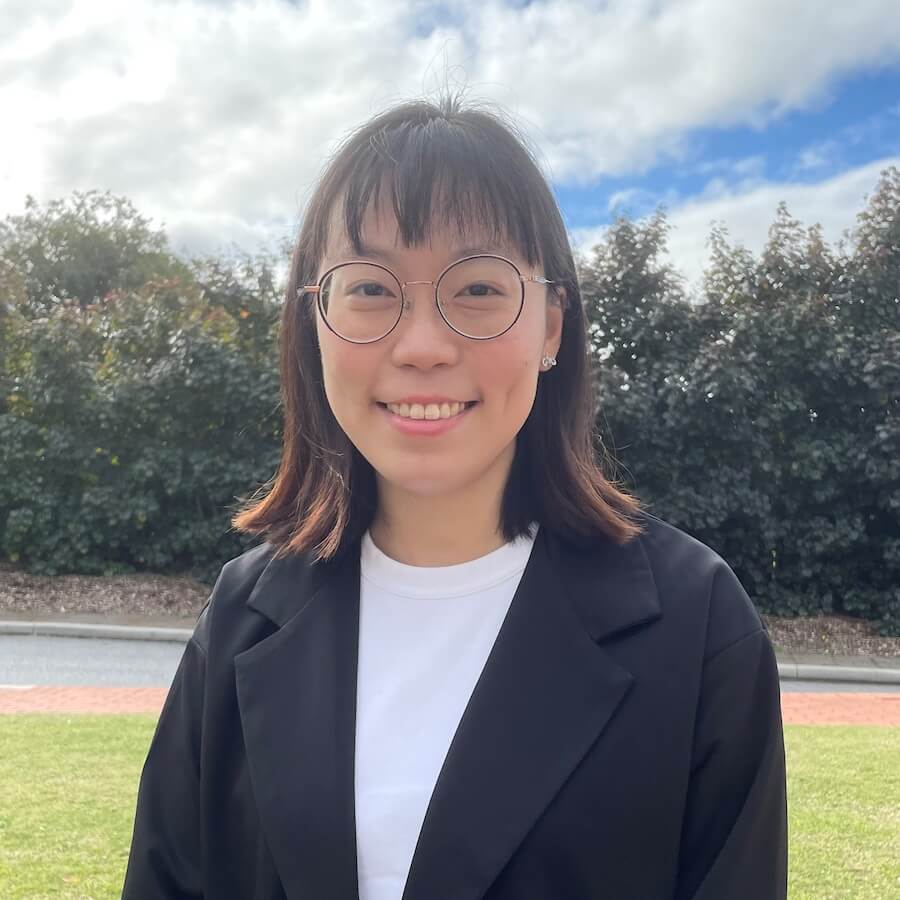
Renee Ng
I am a final year PhD student in the Airway Epithelial Research Group in Wal-yan Respiratory Research Centre. I had completed my Bachelor of Science (First Class Honours) in Microbiology at the University of Queensland. During my honours, I studied the harmful effects multidrug resistant Escherichia coli strains cause, particularly in urinary tract infections. After graduation, I had worked as a Medical Laboratory Technologist for three years in tertiary care public hospitals in Singapore (Singapore General Hospital and Sengkang General Hospital) in the Department of Microbiology (Bacteriology division). Having witnessed the detrimental effects and increasing incidences of multidrug resistant bacterial infections throughout my time there, I became passionate to address multidrug resistance bacterial infections in clinical settings, and this spurred me to start a PhD this that is exploring the potential of bacteriophages to treat antibiotic resistant Pseudomonas aeruginosa lung infections in children with cystic fibrosis. I was awarded a number of competitive scholarships to facilitate my studies including the UWA and Graduate Women (WA) Research Scholarship, The CFWA Golf Classic Scholarship, Wesfarmers Centre for Vaccines and Infectious Diseases HDR Scholarship and the Geoffrey Kennedy Convocation Postgraduate Research Travel Award. Since starting my PhD I had presented at numerous international (2), national (4) and state (7) conferences. In my project, I have successfully isolated and purified novel phages (>300 phages) from both environmental and wastewater samples collected from the Perth metropolitan area using a pipeline that I developed and implemented for our group. The phages were assessed and ranked against clinical isolates of P. aeruginosa derived from individuals with CF. The top 30 phages with the broadest activity against all isolates were then selected for whole genome sequencing and genomic characterisation. The phages were also phenotypically characterised according to their stability (both temperature and pH), efficacy and morphology. With the collection information, the phages can be assessed for their feasibility for therapeutic use. Additionally, I am investigating the potential of combination treatment of phages with antibiotic(s) or chemical adjuvant(s) against P. aeruginosa in planktonic and biofilm states. By comparing the efficacy of phage therapy against P. aeruginosa infections on different states, I will be able to gain new insights on the ability of my phages to target both acute and chronic infections. This project will also be the first to establish P. aeruginosa biofilms on CF primary airway epithelial cells cultured at air-liquid interface, mimicking chronic infection of P. aeruginosa in the lungs of children with CF. I will be able to assess the effects of phage treatment on host airway and bacterial load reduction. The results generated will contribute to the knowledge on the inflammatory response and new insights to the potential of phage therapy to optimise treatments. My PhD will be the first to compare the efficacy of phage therapy against clinical-derived isolates of P. aeruginosa from children with CF, and to assess any potential harmful effects on primary airway epithelial cells derived from these individuals. This work aims to explore the feasibility of phage therapy and in so doing develop a screening tool for high throughput phage assessment as well as a novel therapeutic pipeline to eradicate this pathogen in those with CF.